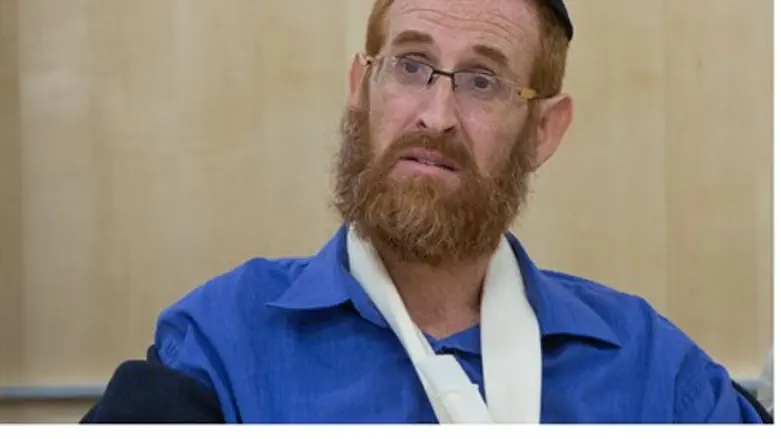
The state informed the High Court on Monday that it has decided to accept the decision to merely seal off the room of Arab terrorist Mu'taz Hijazi, who shot Temple Mount activist Yehuda Glick four times from point blank range in an assassination attempt last October, reports Haaretz.
After leaving Glick critically wounded, Hijazi fled the scene only to be killed less than 24-hours later in a shoot-out with security forces after he resisted arrest at his home in Jerusalem.
In response to the High Court decision to suspend the demolition order on Hijazi's home after his family petitioned, Glick, who despite being critically wounded miraculously survived the attempt on his life, asked to testify in the case.
After the High Court asked the state to present arguments for demolishing Hijazi's home, the state prosecutor on Monday said it had been decided to accede to merely sealing off the terrorist's room.
Sealing off the room of the terrorist, who the Palestinian Authority (PA) praised as a "hero defending freedom," is "proportional and reasonable," wrote the state prosecutor.
Hijazi had in fact been arrested previously, back in December 2000 during the Second Intifada, for terrorism charges. His six year prison term was extended twice after he assaulted prison guards on two separate occasions, and he was released 11 years later. Despite that, Hijazi was employed at the Terasa restaurant in the Begin Heritage Center where he shot Glick.
It has been noted that the state in several recent similar cases has not demolished the homes or even the rooms of murderous terrorists, despite the heinous nature of the crimes and the deterrent effect of such moves in undermining the motivation of terrorists.
Last November photographic evidence proved that the supposed demolition of the Jerusalem home of an Arab terrorist who murdered two Jews with his car last October - including a three-month-old baby - was in fact not demolished, but only a small portion on the third-floor was destroyed allowing quick reconstruction.
In the demolition of the home of the terrorist who murdered police Chief Superintendent Baruch Mizrahi last April, similarly only a small part of the home where the terrorist lived was destroyed.